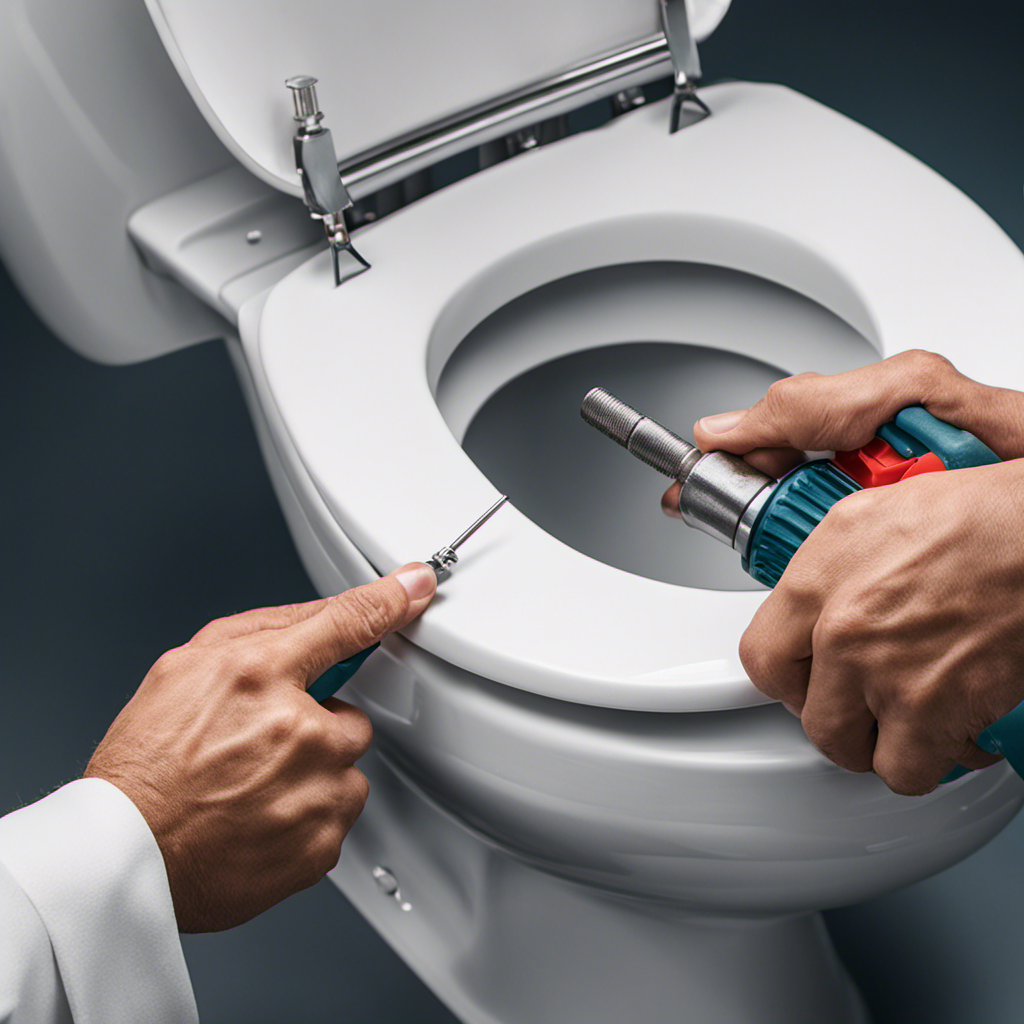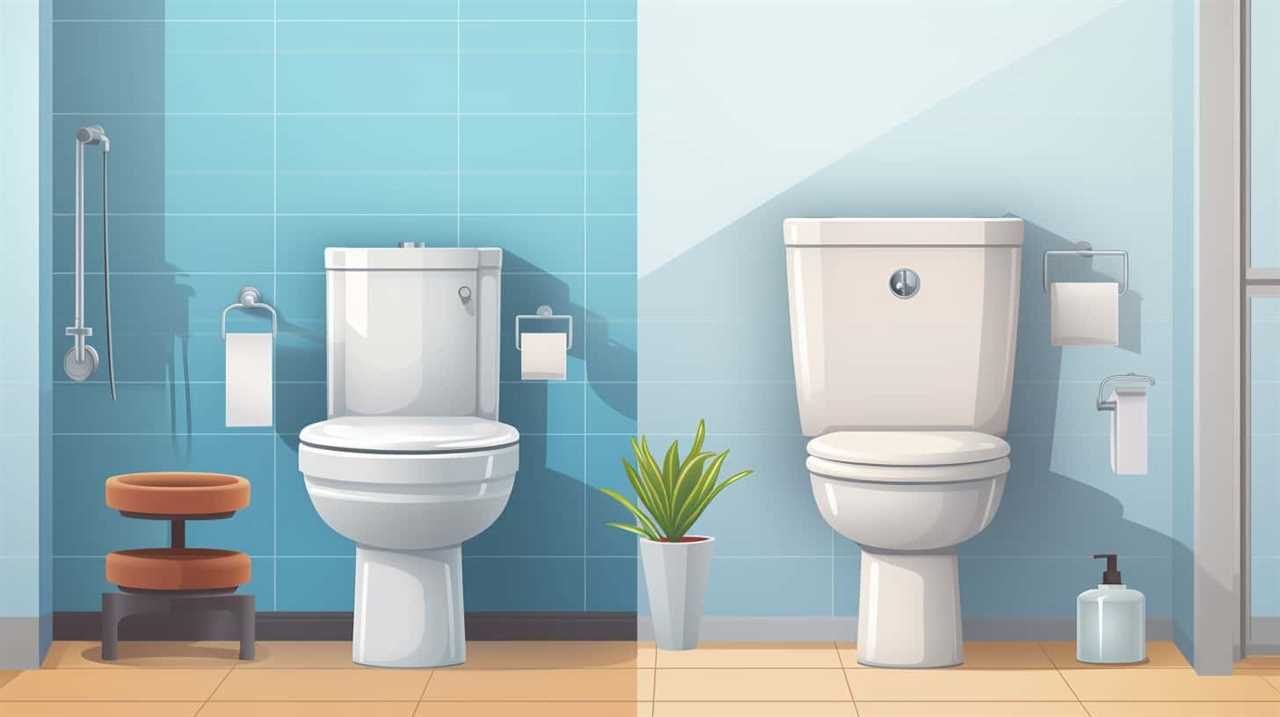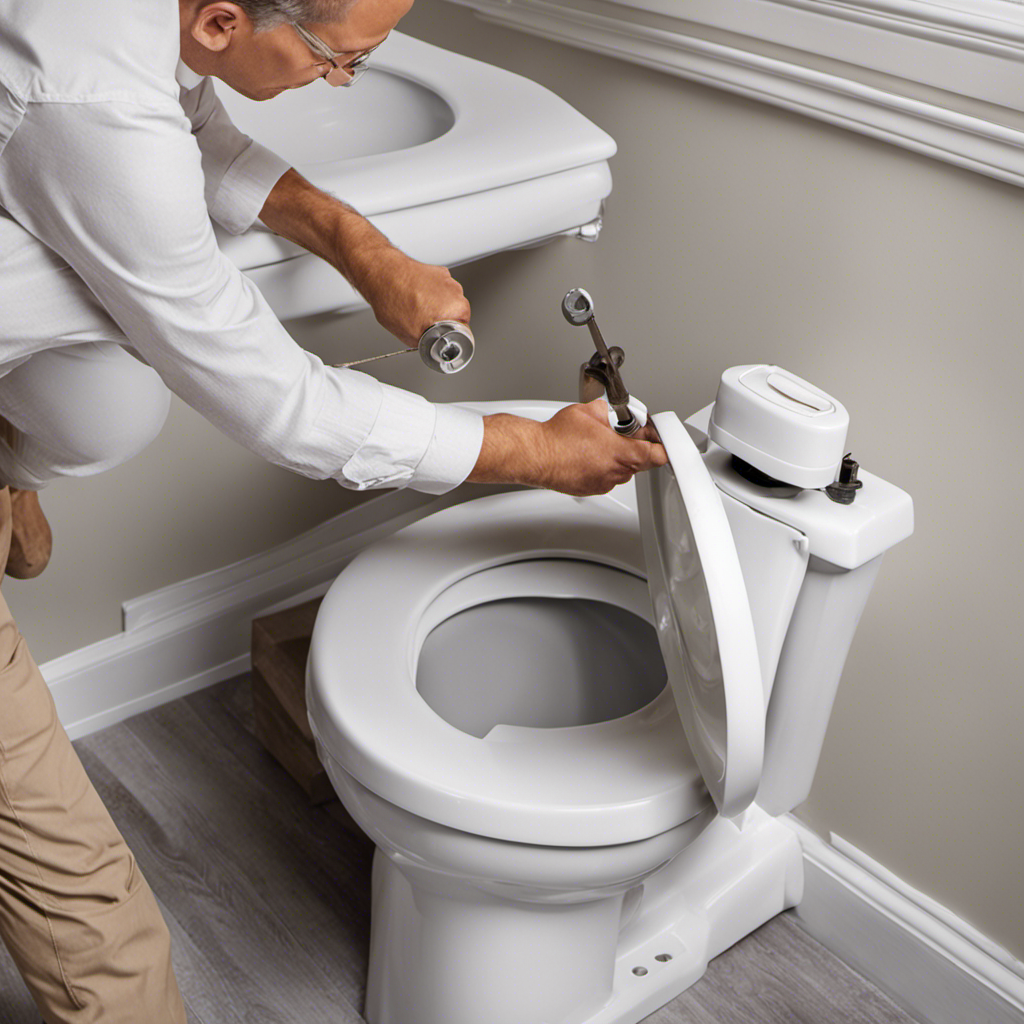Men and women, let’s begin an exploration to uncover the truth about flushable wet wipes.
Have you ever wondered if these convenient products truly live up to their claims?
Join us as we delve into the world of plumbing systems, environmental concerns, and industry standards.
Through objective analysis and evidence-based research, we aim to provide you with the mastery you desire.

Prepare yourselves for a captivating exploration of the flushability of wet wipes, and prepare to be enlightened.
Key Takeaways
- Flushable wet wipes are often marketed as being safe to flush, but there is a lack of regulation for the term ‘flushable’, leading to consumer misconceptions and potential damage to plumbing systems.
- Wet wipes do not break down easily and can accumulate in sewer pipes, causing clogs and costly repairs for sewage treatment plants and homeowners.
- There are concerns about the biodegradability of flushable wipes, as many contain synthetic materials that contribute to marine pollution and harm marine life and ecosystems.
- Regulations and industry standards are needed to ensure labeling requirements, clear disposal instructions, and compliance with performance requirements for flushable wet wipes. Alternatives such as reusable cloth wipes and biodegradable options can help reduce environmental impact.
Understanding Flushability Claims
To better understand flushability claims, let’s examine the criteria that determine whether wet wipes can be safely flushed down the toilet.
Consumer misconceptions and marketing tactics often lead to confusion in this area. Many consumers believe that if a wipe is labeled as ‘flushable,’ it means it can be easily and safely disposed of in the toilet. However, this isn’t always the case.
Marketing tactics used by some manufacturers may exaggerate the flushability of their products, leading consumers to believe they can flush any wet wipe without issue. It’s important to note that the term ‘flushable’ isn’t regulated and can vary between different brands and products.
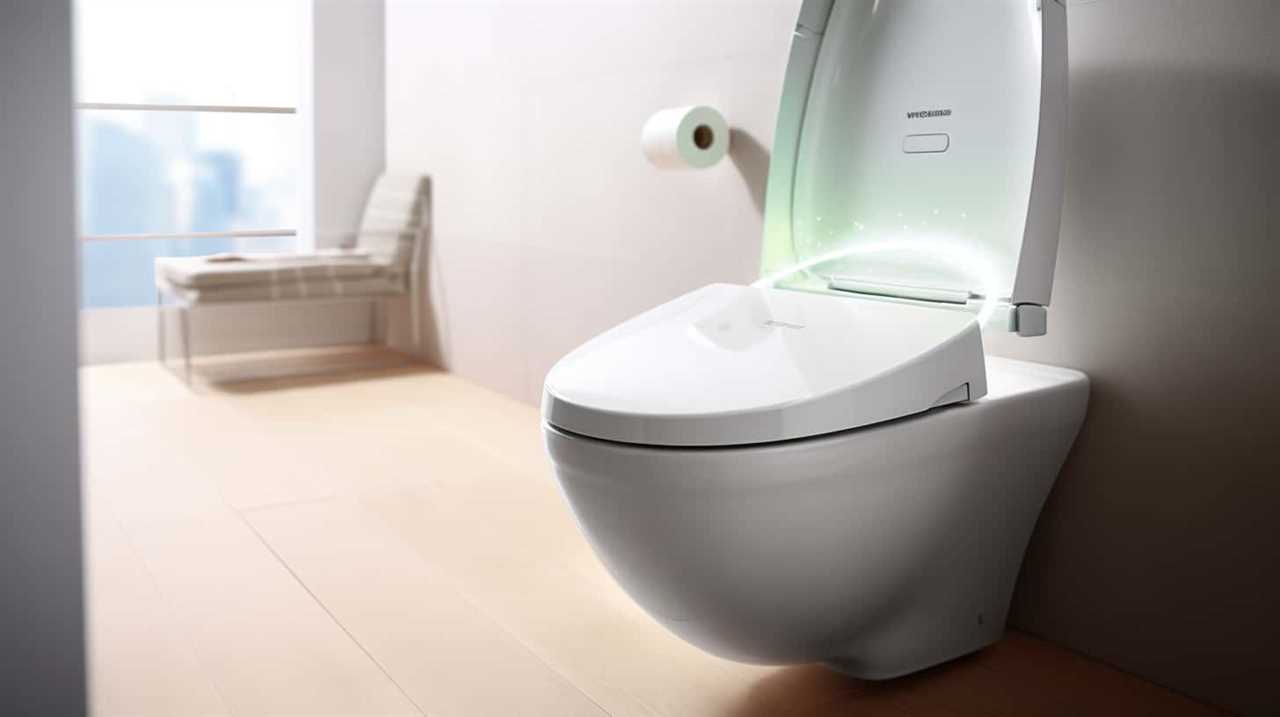
Therefore, it’s crucial for consumers to read and understand the specific guidelines provided by the manufacturer to ensure proper disposal and prevent potential plumbing issues.
The Impact on Plumbing Systems
As we continue our exploration of flushability claims, it’s important to understand the significant impact that some wet wipes can have on our plumbing systems. These wipes, even if labeled as ‘flushable,’ can cause long-term effects on sewage treatment plants and result in cost implications for homeowners and municipalities.
Here are three key points to consider:
- Long term effects on sewage treatment plants: Wet wipes don’t break down as easily as toilet paper. They can accumulate in sewer pipes and clog the pumping equipment at sewage treatment plants. This can lead to costly repairs and maintenance for these facilities.
- Cost implications for homeowners: When wet wipes clog plumbing systems, homeowners may need to hire professional plumbers to fix the issue. This can be expensive and inconvenient. Additionally, insurance may not cover the damage caused by these clogs, further increasing the financial burden on homeowners.
- Cost implications for municipalities: Municipalities bear the cost of maintaining and repairing the sewage infrastructure. The increased use of wet wipes can strain these systems, leading to increased expenses for municipalities and potentially higher taxes for residents.
It is crucial for consumers to be aware of the impact these seemingly harmless products can have on our plumbing systems and take appropriate measures to dispose of them properly.
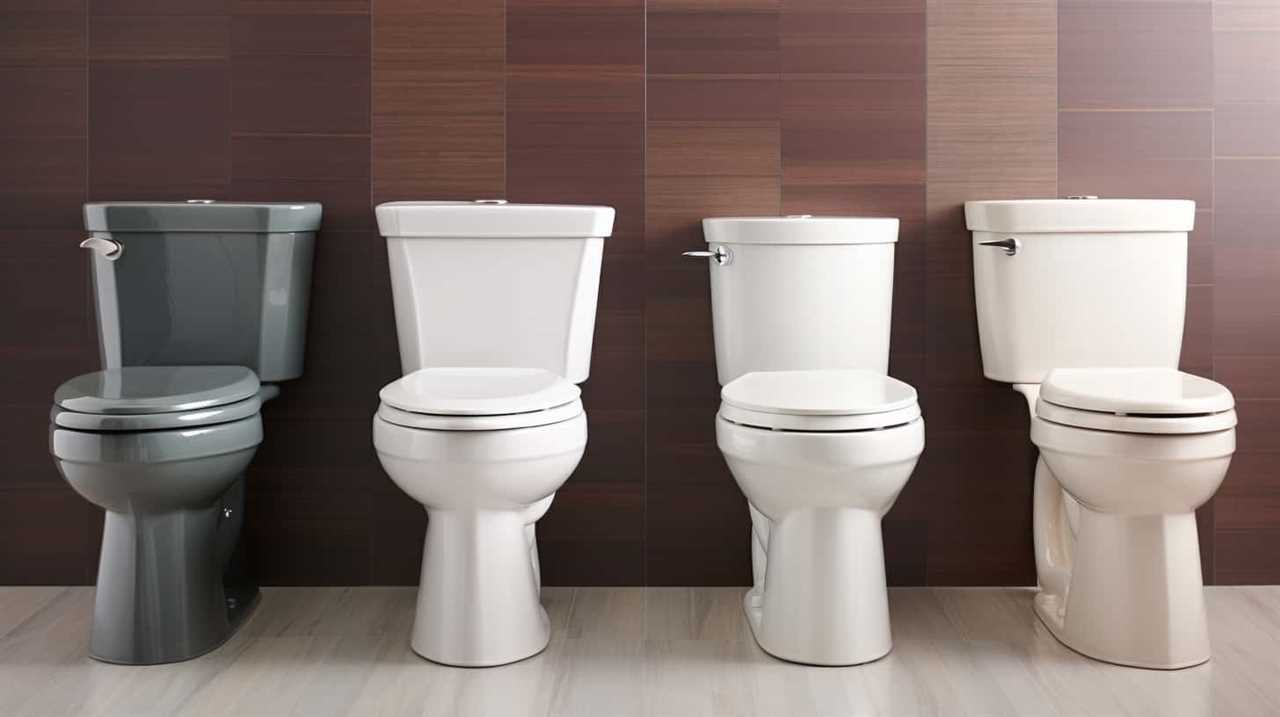
Environmental Concerns and Challenges
We must address the environmental concerns and challenges posed by these so-called flushable wet wipes. While these wipes may be marketed as ‘flushable,’ there are serious doubts about their biodegradability. Many wet wipes are made of synthetic materials, such as polyester or polypropylene, which don’t break down easily in the environment.
As a result, when these wipes are flushed down the toilet, they can end up in our oceans and contribute to marine pollution. Marine pollution is a significant problem, with devastating impacts on marine life and ecosystems. Studies have shown that wet wipes make up a significant portion of the plastic debris found in our oceans.
Therefore, it’s crucial that we take steps to educate consumers about the environmental consequences of flushing wet wipes and promote more sustainable alternatives.
Regulations and Industry Standards
While there’s a growing concern about the environmental impact of flushable wet wipes, it’s important to examine the current regulations and industry standards surrounding their labeling and disposal.

- Regulatory Compliance: The issue of flushable wet wipes falls under the jurisdiction of various regulatory bodies, including the Federal Trade Commission (FTC) and the Environmental Protection Agency (EPA). These agencies enforce labeling requirements and ensure that manufacturers comply with standards for flushability.
- Labeling Requirements: The labeling of flushable wet wipes is subject to specific guidelines. For instance, the wipes must be labeled with clear instructions on proper disposal, including whether they’re safe to flush or should be thrown in the trash. The labeling should also provide accurate information about the materials used in the wipes and their potential impact on the environment.
- Industry Standards: Several organizations, such as INDA (Association of the Nonwoven Fabrics Industry) and EDANA (International Association Serving the Nonwovens and Related Industries), have developed industry standards for flushable wet wipes. These standards include criteria for flushability, disintegration, and biodegradability, ensuring that the wipes meet certain performance requirements.
Alternatives to Flushable Wet Wipes
One possible alternative to flushable wet wipes is using reusable cloth wipes. These wipes are made from soft, absorbent fabrics such as cotton or bamboo, and can be washed and reused multiple times. Not only are reusable cloth wipes more sustainable than disposable wet wipes, but they also offer a cost-effective solution in the long run.
When it comes to disposal, cloth wipes can be easily washed along with regular laundry and don’t contribute to clogged pipes or sewer system issues. Additionally, some companies offer compostable cloth wipes made from natural fibers that can be safely disposed of in compost bins.
Frequently Asked Questions
How Do Flushable Wet Wipes Impact the Environment?
When considering the environmental impact of flushable wet wipes, it is crucial to examine their biodegradability. These wipes, if truly flushable, should break down quickly in water and not cause harm to ecosystems.
What Are the Regulations and Industry Standards for Flushable Wet Wipes?
Regulations and industry standards are critical when determining flushable wet wipes. Compliance ensures proper disposal and minimizes environmental impact. Understanding these guidelines is essential in making informed choices about the products we use.
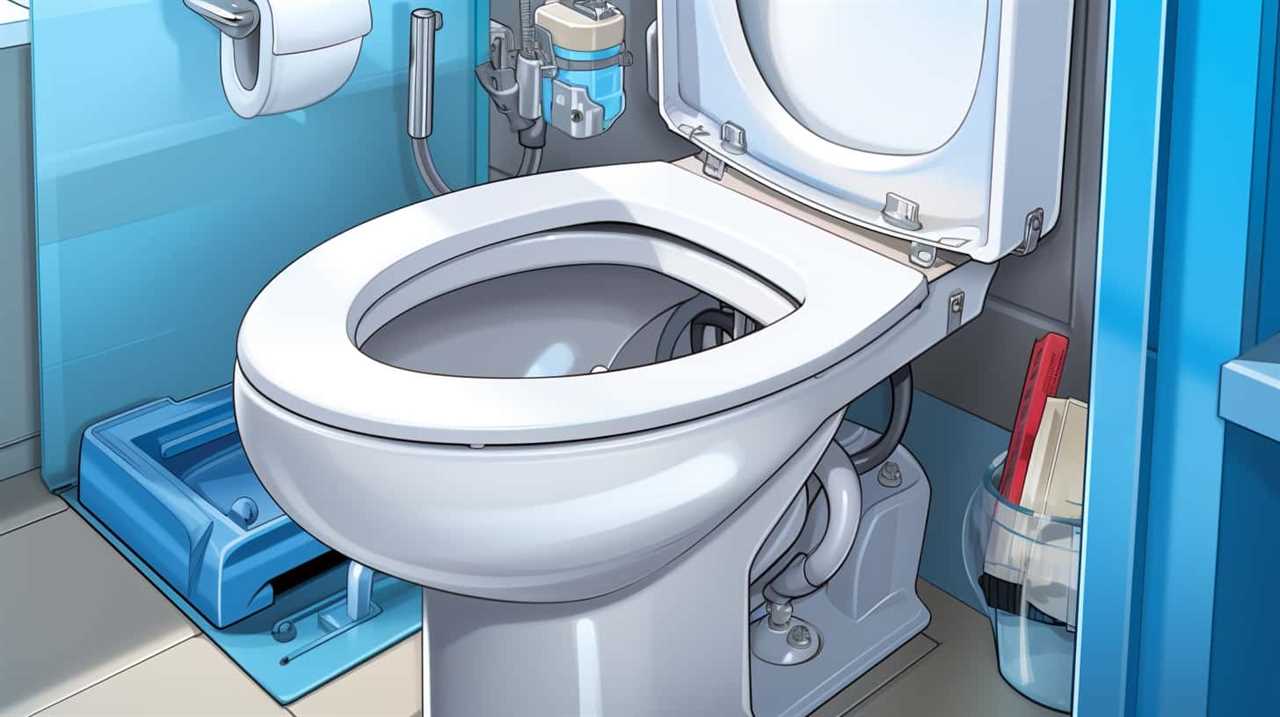
Are There Any Alternatives to Flushable Wet Wipes?
There are environmentally friendly, reusable options available as alternatives to flushable wet wipes. These options help reduce waste and are a more sustainable choice for individuals looking to minimize their impact on the environment.
Can Flushable Wet Wipes Cause Clogs in Plumbing Systems?
Flushable wet wipes can potentially cause clogs in plumbing systems if not disposed of properly. We must be mindful of the risks involved and ensure their proper disposal to prevent any potential plumbing issues.
What Are the Challenges Associated With the Disposal of Flushable Wet Wipes?
Challenges with the disposal of flushable wet wipes include their potential to clog pipes and contribute to environmental pollution. The environmental impact of flushable wet wipes is a concern due to their slow decomposition and potential harm to aquatic life.
Conclusion
In conclusion, the so-called ‘flushable’ wet wipes may seem harmless, but they’re wreaking havoc on our plumbing systems and the environment. Despite claims of being safe for flushing, these wipes can cause blockages and costly repairs.
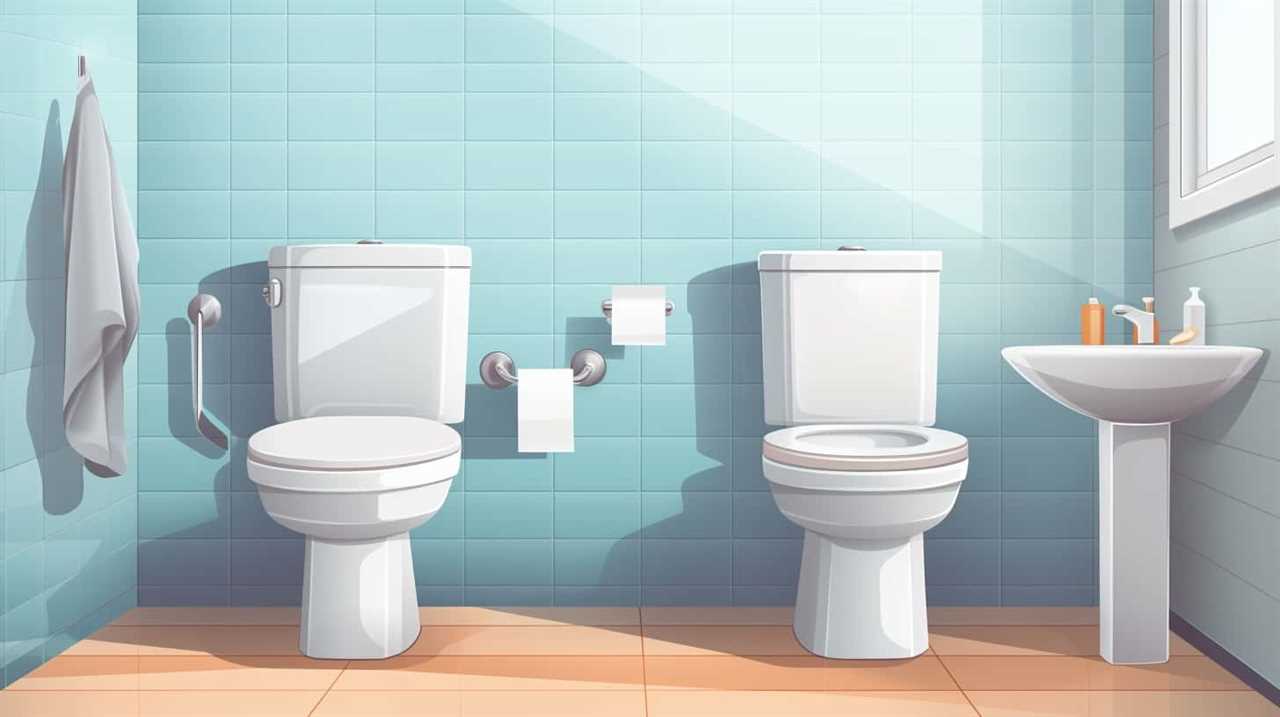
It’s time to face the reality that there are no truly flushable wet wipes. Let’s ditch these convenient yet destructive products and opt for more sustainable alternatives for the sake of our wallets and the planet.


